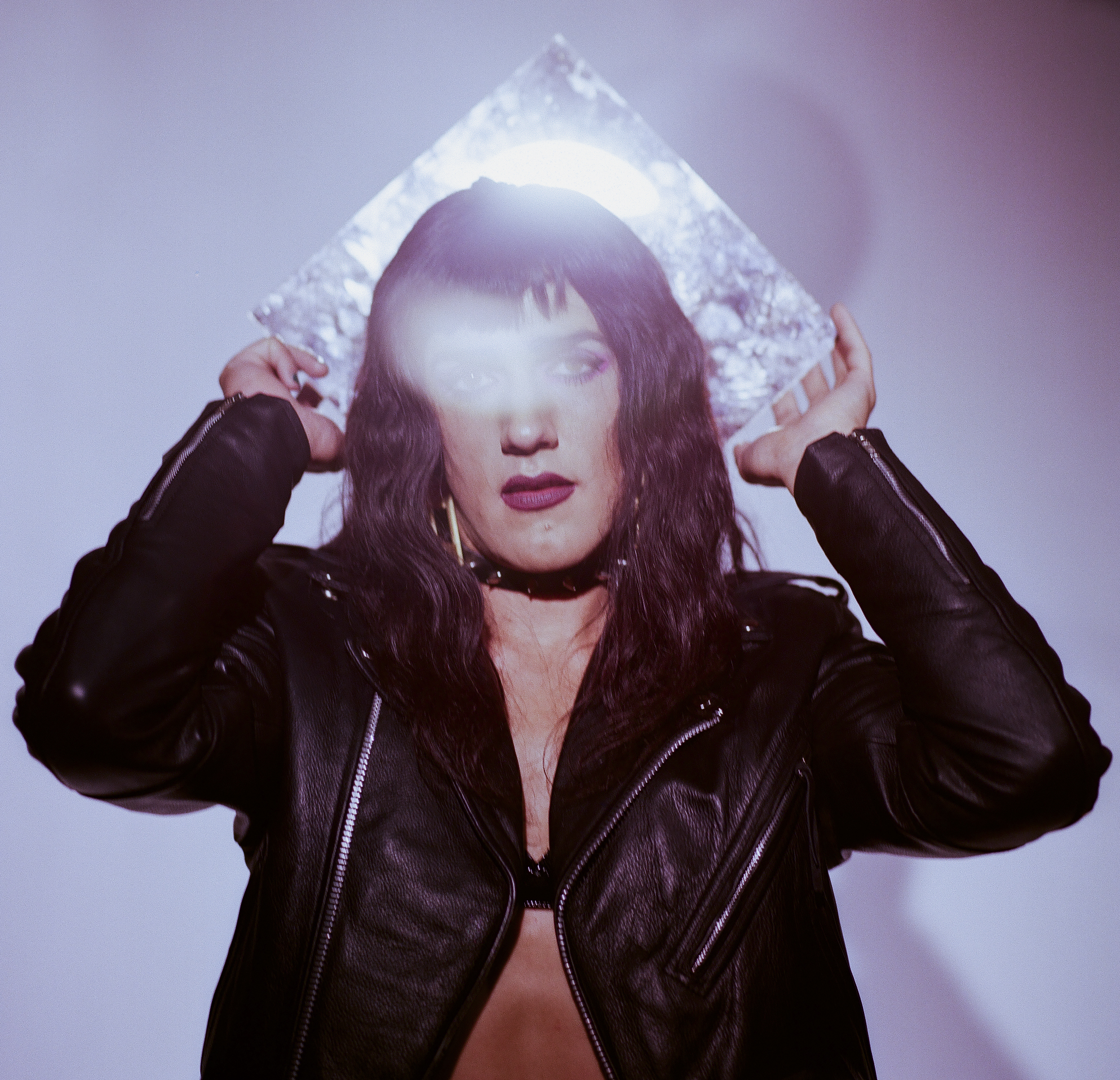La Neve’s no stranger to tackling the political — she’s been organizing and fighting the powers that be in her hometown of Providence for years as one of the founding members of Rhode Island punk staple Downtown Boys, where she performs outside of drag as Joey DeFrancesco. As La Neve, she is a solo act who bills herself as a historian, and performs at the precipice of gender and genre. For her debut record The Vital Cord, named for the political concept of an economic cord and a tie to violent history, she channels her punk roots, but takes it even further.
The music packs a lyric and sonic punch, going places most artists in the mainstream probably wouldn’t dare to. A close listen to The Vital Cord reveals a queer dance cover of Stone Roses classic “I Wanna Be Adored,” a sample of a speech by Marxist economist David Harvey in the title track, and a dissection of gender in “Stability, which features a video that sees La Neve dancing through a psychedelic landscape alongside animated guillotines. The revolution has always been helmed by those on the precipice, the trans, queer, black and POC artists — La Neve is an inheritor and promulgator of this lineage, zeroing in on society’s oppressors with a sharp tongue and gnashing beats.
I met La Neve at Caffe Reggio, famous among other things for being David Bowie’s favorite when he lived in New York. She appeared in purple eye-liner and guillotine-shaped earrings that glowed in the sun. We sat outside and chatted about Italo disco, queer dissidence, political revolt, the intersection of punk and dance music, and her excellent debut record.
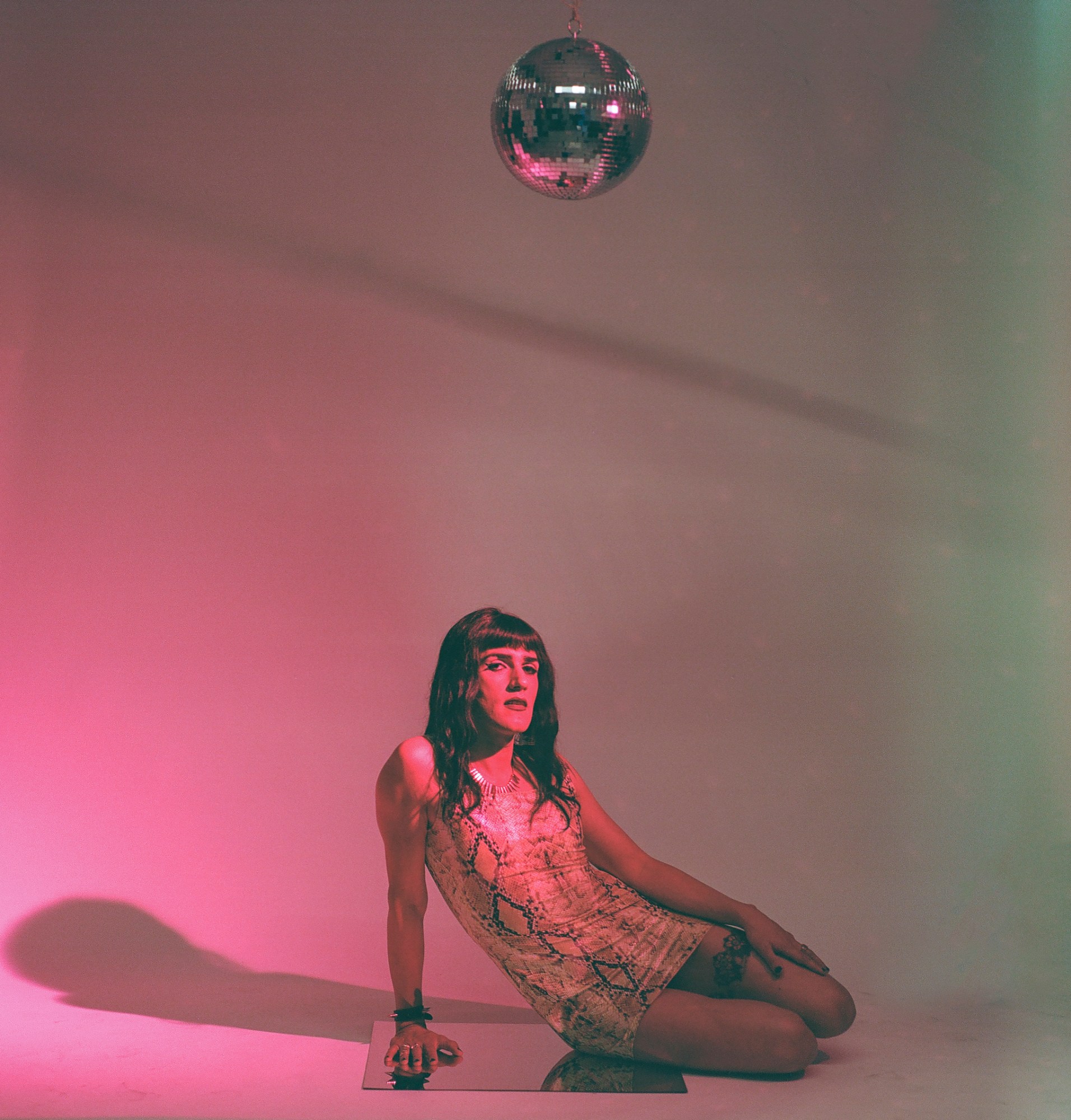
Did La Neve start while Downtown Boys was more active?
I’ve always in some part of my life presented this way. In 2016-2017, I started making dance tracks at Spark City in Providence where I started presenting like this more because we had the space. [My first solo EP] American Sounds was out in 2017, the same year Downtown Boys was coming off a bigger record, Cost of Living. I feel like with The Vital Cord I was able to focus on this aspect of my music more.
Can you put me into one of those Spark City shows?
Providence is a small city, and the scene is based around these old abandoned factory spaces. Spark City still physically exists, it’s just empty. It was a chaotic environment where we had space for a lot of experimentation; it’s why those spaces are really beautiful. You can do that without all this economic and social pressure to do things perfectly or make money. I actually lived in Spark City and remember a lot of bands and artists passing through. I was there for three years, opening it and staying through until it shut down. It was a big three years… all my artistic development happened there.
I’ve noticed you care a lot about history.
I don’t have a PhD, but I’ve worked in museums. I was also a union organizer, which is how I met Victoria [Ruiz, Downtown Boys’ vocalist.] I worked in a factory museum doing tours; it was the first factory in the US. Its history was very reactionary, exalting the bosses and the capitalists, ignoring the workers, etc. I got some grants and made a labor history program we still run out of the museum and have made radical history programs at different spots about strikes and slavery in the north.
[Pointing at earrings] So, you fuck with the guillotine?
[Laugh] It’s the title of the record, in a way! It’s taken from the concept of a vital economic and political cord tying us to this violent capitalistic history. In Rhode Island, you can very clearly see the history and money made in the slave trade and put into factories and banks… this cord of horrors of capital still constructing our will today. When I planned to release the record, I didn’t realize it was Columbus Day / Indigenous People’s Day and I realized it was kind of appropriate.
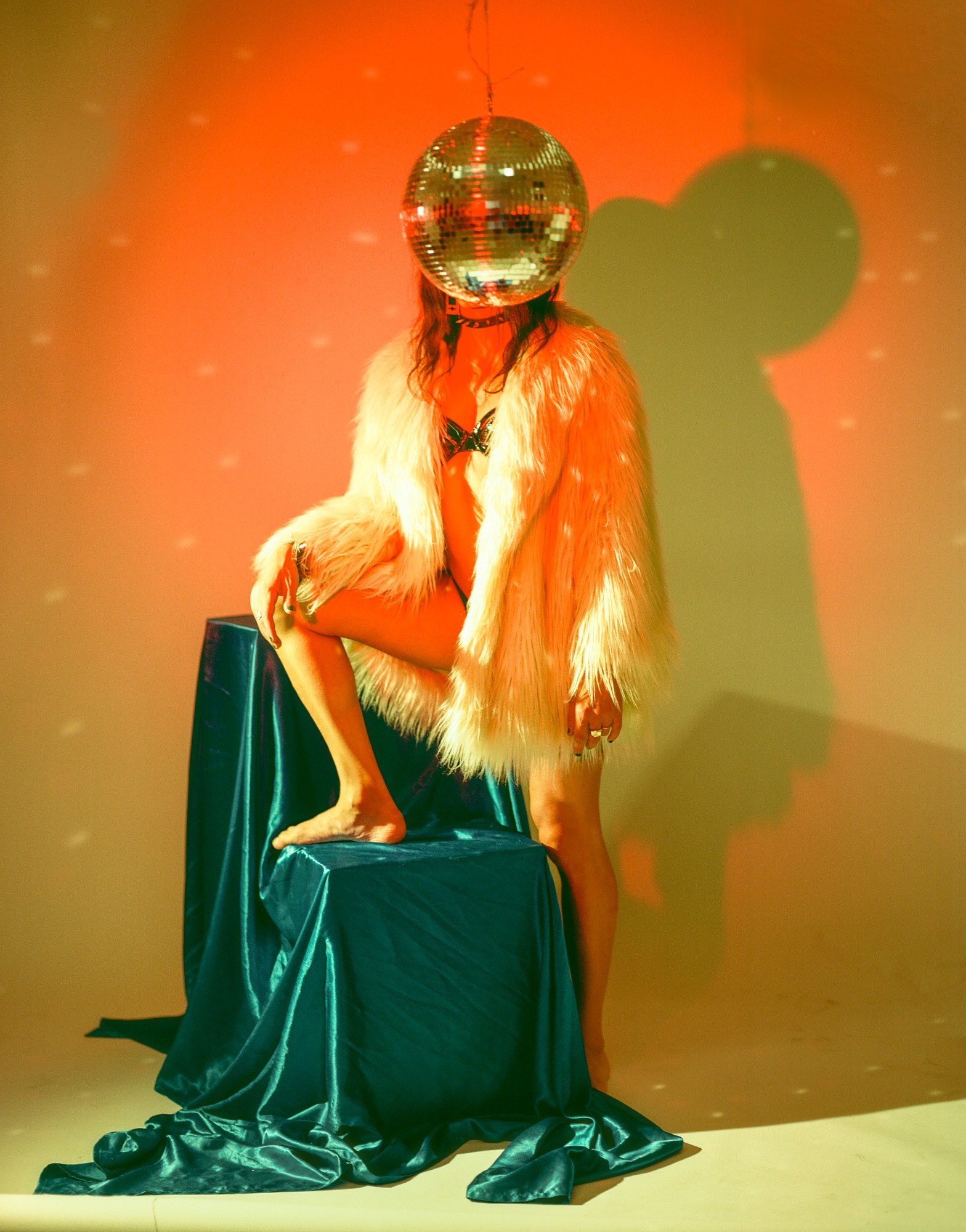
After hearing the title, I would’ve assumed it was an umbilical cord.
I guess that also makes sense! A first full-length record, birth, issues of gender and gender-assigned-at-birth… I can see that, yeah!
Taking your punk roots into account, I was surprised how disco-influenced The Vital Cord is. Can you speak to the ties between punk and disco?
It’s a lot of the same feelings, the same energy of needing to let shit out and yell and be big. I’ve always listened to dance, maybe more than punk. Even in Downtown Boys sometimes I feel like we’re trying to make dance music, but that group of people makes punk because it’s what we know. My favorite bands growing up combined these things; I remember being 18 and seeing M.I.A. I know some people have problems with her, but I remember how exciting she was onstage, sloppy in a beautiful way — punk sloppy. The airhorns and gunshots in “Paper Planes” were 10 times louder than the music in the mix.
My favorite electronic and drag acts are the ones that aren’t clean or polished. It’s the ones that get overblown and sloppy and imperfect. I love that intersection of things. Atari Teenage Riot, The Prodigy… that lineage where you can dance and party but push it in a political direction. The more radical music in the 70s was disco, which brought the working class people and people of all genders and races together. House music was made by queer black people and POC, and it’s been gentrified like how rock n’ roll has been gentrified. I do listen to old house stuff, which gets me pumped up. Frankie Knuckles, Crystal Waters, Deee-Lite… that early 90s poppified sound and aesthetic is from the same place.
You can see that in the video for “Stability” for sure.
That kind of universe is inspiring and I keep coming back to it. Electronic dance music came from queer roots despite the industry’s efforts to make it all Diplo. Hercules and Love Affair, Discwoman, Juliana Huxtable, Moor Mother, DJ Haram… there’s a lot of queer, trans and POC DJs, performers and producers holding it down and carving out the space at a lot of these clubs. One of my favorite records this year is Abdul Ali, a very experimental producer rooted in Baltimore club culture. He’s an MC, and talks about how hard it is even though he’s been doing it for years… he has to really fight.
It’s hard for the institutional industry to pay attention to people who look and present like this and make politicized music. It’s a constant fight, but there’s inspiring stuff all over the place, people declaring themselves and making it happen. In the video for “Stability” I envisioned background dancers that were guillotines, and my friend Kara [Stokowski] made it happen.
You’ve discussed the role young people have in “stopping the apocalypse” and how a huge part of this is queer dissidence.
You’re seeing protesting and action now on a level I haven’t seen before. What’s happening now with the climate protests, Black Lives Matter — which started years ago and continues today — and the socialist movement… a lot of this is inspiring and led by young people. There’s always this feeling of there being skin in the game, but now more than ever there is. The case seen recently about a trans woman fired for being trans and the case being heard in high court really exposes these intersections. Coming from my background as a labor organizer, it’s been so clear that queer, trans, and labor rights are all intersecting, and the labor movement must take the fight for queer rights seriously because we’re all workers. If we’re not serious about fighting for all of us, it weakens every other movement.
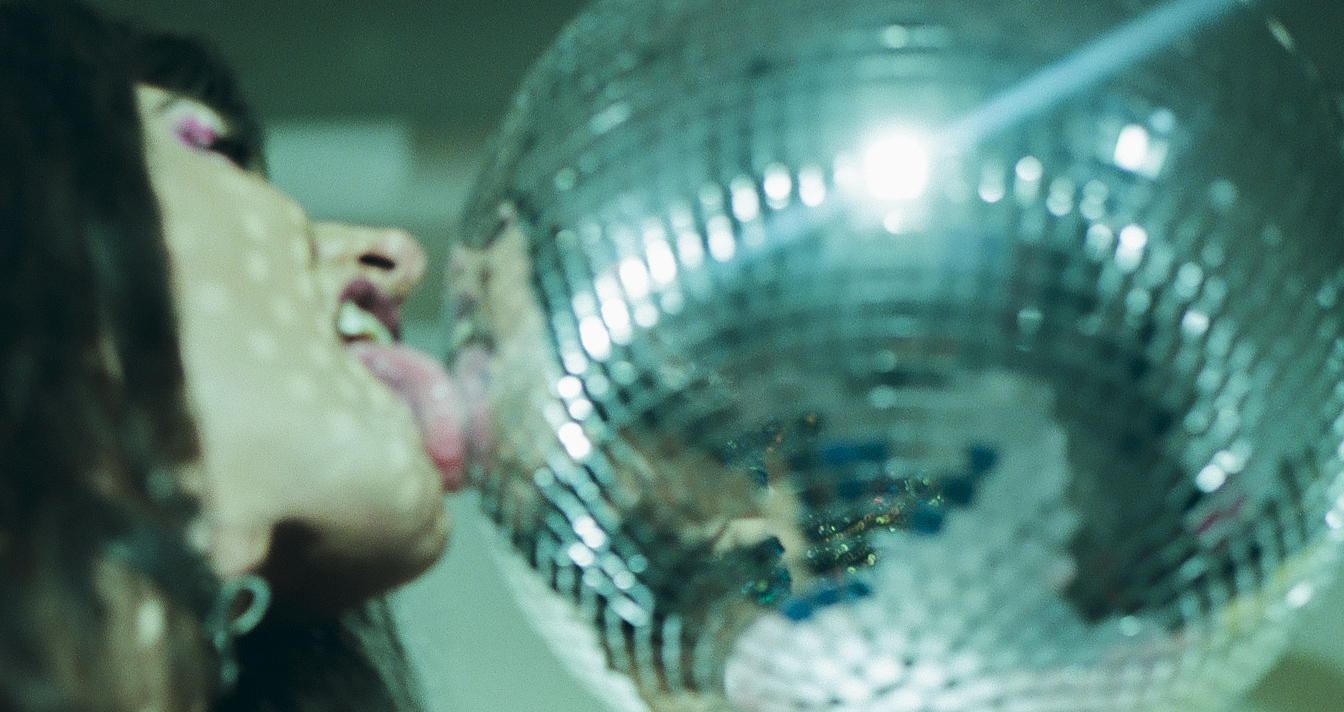
Is The Vital Cord a call to action?
I still work as an organizer and participate in these movements and see my music as a part of that. I don’t know what else you could write songs about right now! I think you can write about personal things and that is valid, but my place and what I’m thinking about now has to be political. “Stability” is coming from a personal place; I’m talking about my identity. It’s a personal experience, but I’m not so naive to that I think my personal experience is separated from the larger issue.
In one of your old interviews, you talk about La Neve as “a higher version of yourself.” Can you speak to that realization and that conception of La Neve?
We talked about me not knowing how to define myself and using drag as a space to try to do that in a way that’s somewhat socially sanctioned. I have a more complicated gender identity, but now there’s a lot of queens that are openly genderqueer or trans. Your gender is a constant negotiation in what you feel and do in the world. Some people are intent on having one phrase or identity for themselves and that’s great, but for me that’s always been fucking messy. I feel like it’s a more liberated version of myself and who I want to be in the world. Hopefully by trying to insert myself into the spaces that don’t want this kind of thing in them, maybe it’ll inspire others to express that.
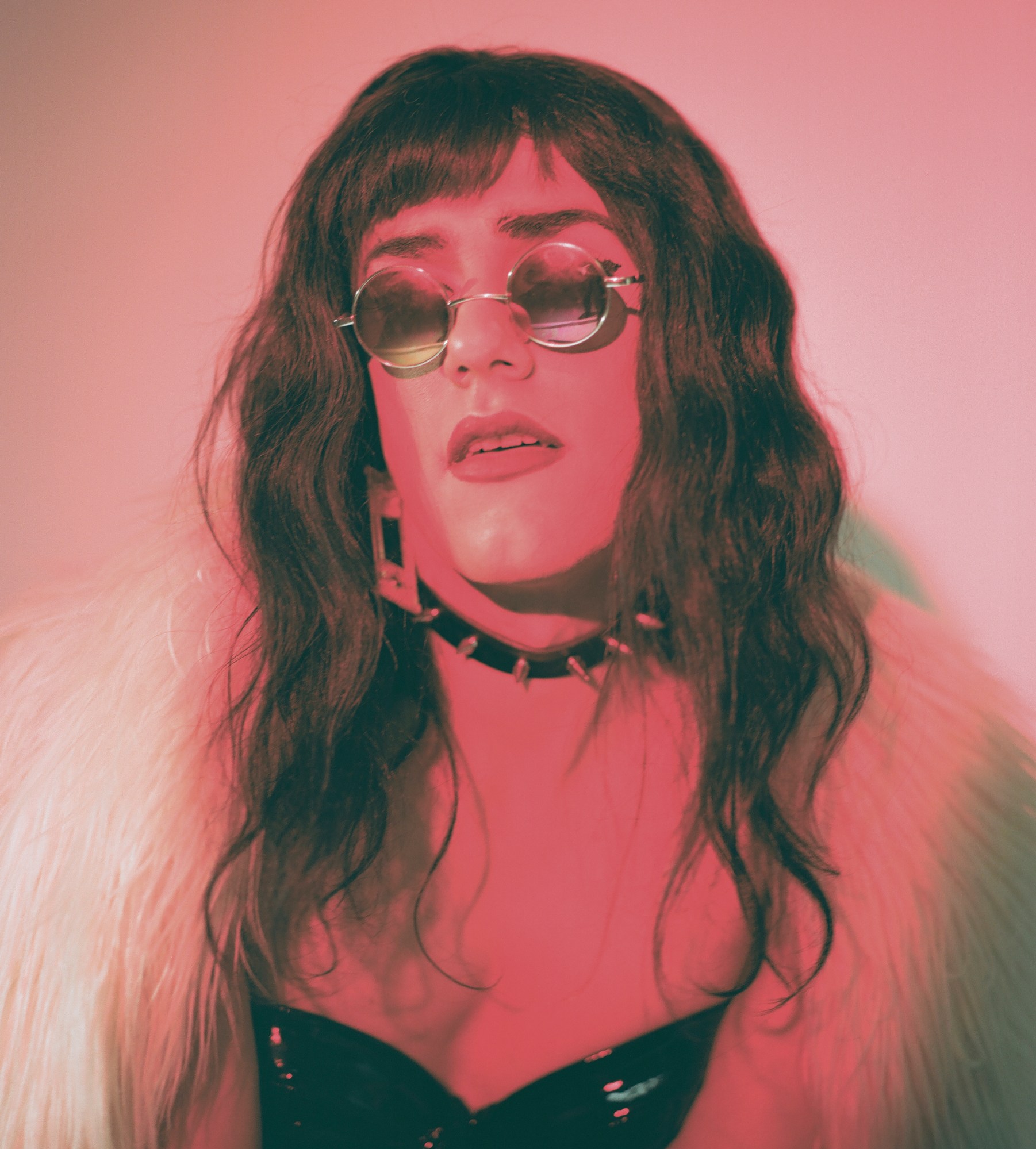
La Neve’s The Vital Cord is out now. Find tour dates and music on her official site.
This interview has been edited and condensed for clarity.
Credits:
Photos: Fernando Osorio
Production Assistants: Alexandra Anez, Mo Wilson
Art Direction: Fernando Osorio, E.R. Pulgar
Wardrobe: E.R. Pulgar, La Neve
Makeup: La Neve
